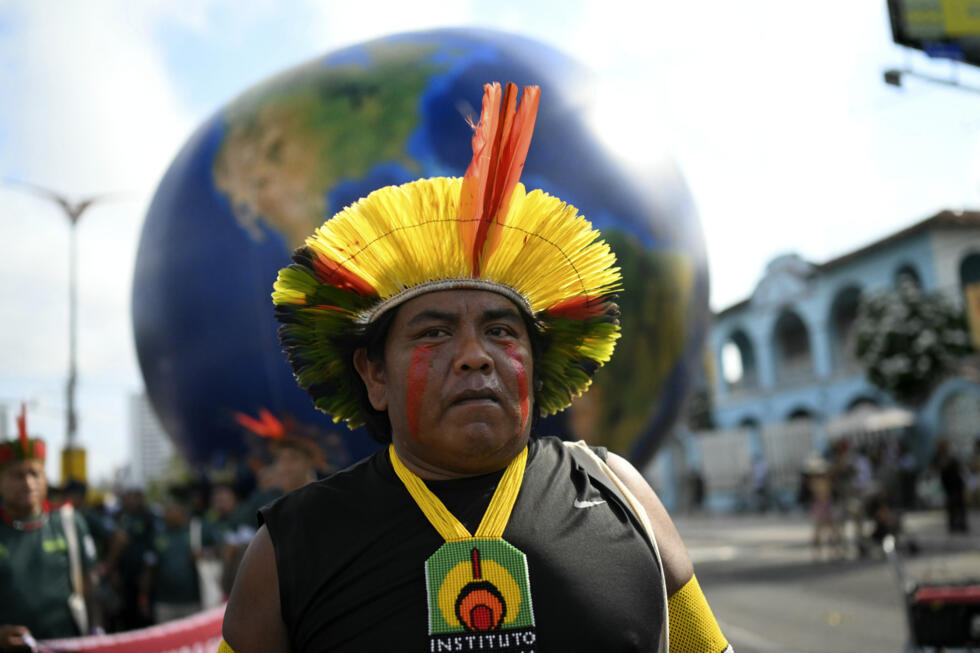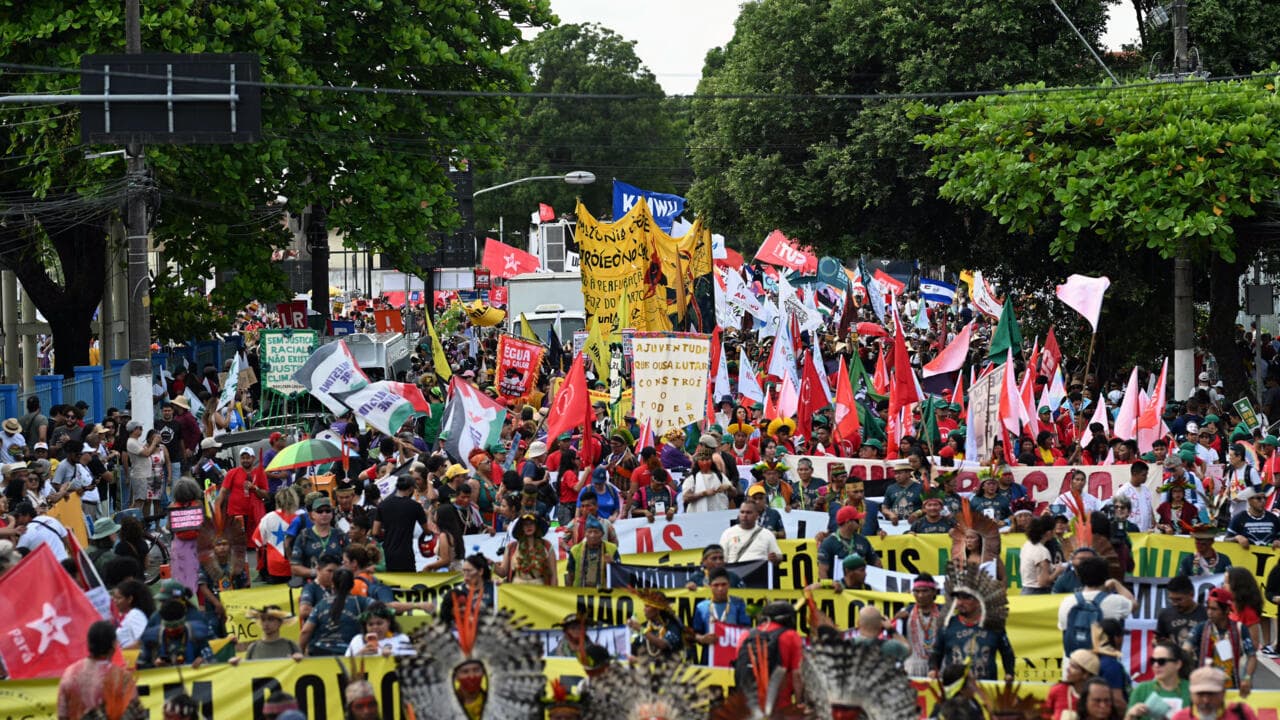Thousands of people marched through the streets of Belem on Saturday to press for action from negotiators holding tough talks at the UN's COP30 climate conference in the Amazonian city.
Under a baking sun, Indigenous people mixed with activists gathered in a festive atmosphere, blasting music from speakers, carrying a giant beach ball of Earth and holding a flag of Brazil emblazoned with the words"Protect the Amazon".
It was the first major protest outside the annual climate talks since COP26 four years ago in Glasgow, as the last three gatherings were held in locations with little tolerance for demonstrations – Egypt, Dubai and Azerbaijan.
Branded the"Great People's March" by organisers, the Belem rally comes at the halfway point of contentious negotiations and follows two Indigenous-led protests that disrupted proceedings earlier in the week.
"Today we are witnessing a massacre as our forest is being destroyed," Benedito Huni Kuin, a 50-year-old member of the Huni Kuin Indigenous group from western Brazil, said.
"We want to make our voices heard from the Amazon and demand results," he said."We need more Indigenous representatives at COP to defend our rights."
Their demands include "reparations" for damage caused by corporations and governments, especially to marginalised communities.
Another Indigenous protester, Cristiane Puyanawa, joined the march to call for greater land rights.
“Our land and our forest are not commodities. Respect nature and the peoples who live in the forest,” she said.
Addressing the crowds, Brazil’s environment minister Marina Silva said: “This is a place for us to march and draw up a roadmap for what needs to be done at this COP: a transition away from deforestation and the use of fossil fuels.”
Massive security presence
After a 4.5-kilometre march through the city, the demonstration stopped a flew blocks from the COP30 venue, where authorities had deployed soldiers to protect the site.
On Tuesday, Indigenous protesters forced their way into the Parque da Cidade – the COP30 compound built on the site of a former airport – clashing with security personnel, some of whom sustained minor injuries.
Then on Friday, dozens of Indigenous protesters blocked the entrance for roughly two hours to spotlight their struggles in the Amazon, prompting high-level interventions to defuse the situation.

Negotiators shared their progress in a plenary meeting on Saturday before they hand their work over to national ministers to grapple with remaining political obstacles.
“As negotiators approach week two, they need to remember that climate action isn’t about abstract numbers or distant targets. It’s about people,” said Katharine Hayhoe, chief scientist at The Nature Conservancy non-profit.
“Every choice we make today determines the future we will share tomorrow.”
The sprawling summit agenda covers a huge range of issues with the intention of building on past years’ deals - an often inch-by-inch process that over three decades has delivered some progress, but not enough.
What will emerge from this year’s summit remains unclear, with some of the most controversial issues being discussed outside the formal process - such as increasing climate finance, moving away from fossil fuels, and addressing a collective shortfall in emissions-cutting plans.
Brazil’s COP30 presidency, which is steering those sideline discussions, must decide if it wants to attempt a high-stakes balancing act and come up with a political agreement on those issues that can be endorsed by all - known in COP parlance as a ‘cover decision.’
Asked on Saturday about such a deal, COP30 President Andre Correa do Lago told a news conference:
“For a long time, I’ve been saying that we are not planning a cover decision, but I also said that if there is a movement from the countries to propose a cover decision, the presidency will obviously take it into consideration. So, let’s see how things evolve.”

'Solidarity levies'
Elsewhere at COP, countries laid out new alliances and initiatives.
A group called the Premium Flyers Solidarity Coalition, which is planning to tax premium air tickets and private jets, said that Djibouti, Nigeria and South Sudan were joining the effort, which already includes France, Spain, Kenya and Barbados.
With Western governments slashing foreign aid, the idea of imposing “solidarity levies” on polluting sectors is gaining traction for generating debt-free money to fund climate action.
“If this COP has made anything clear, it is that the next decade must be one of acceleration powered by non-debt finance,” said Selwin Hart, special adviser to the U.N. Secretary-General.
The Utilities for Net Zero Alliance group of companies said it raised its investment target from about $116 billion per year to nearly $150 billion, including $66 billion for renewable energy and $82 billion on electricity grids and batteries.

